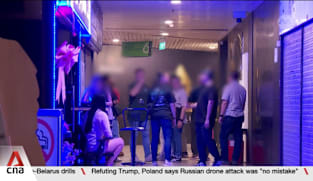Josephine Teo on Elections (Integrity of Online Advertising) (Amendment) Bill
AI-generated misinformation can seriously threaten Singapore’s democratic foundations and demands an equally serious response - and the Elections (Integrity of Online Advertising) (Amendment) Bill is the country’s carefully calibrated response to augment its election laws and ensure the truthfulness of candidate representation and the integrity of elections continue to be upheld. Digital Development and Information Minister Josephine Teo, who said this in Parliament on Tuesday (Oct 15), highlighted the key legal requirements. It will prohibit the publication of content that is or includes online election advertising (OEA) that is digitally generated or manipulated and depicts a candidate saying or doing something that he or she did not say or do but is realistic enough that some members of the public would reasonably believe that the candidate did in fact say or do that thing. The Bill targets the substantive content of the OEA and is scoped to address content that is digitally generated or manipulated, including those generated or manipulated using AI techniques such as generative AI and non-AI techniques such as Photoshop, dubbing and splicing. It is scoped to address the most harmful types of content in the context of elections, which misleads or deceives the public about a candidate through a false representation of his speech or actions that is realistic enough to be reasonably believed by some members of the public. The enhanced safeguards will apply during the election period - from the issuance of the Writ of Election to the close of polling on Polling Day. Mrs Teo stressed that the Bill addresses the most harmful digitally generated and manipulated content, including deepfakes, that can influence electoral outcomes, while recognising the value of novel content creation techniques and the desire of candidates to employ innovative methods to engage voters. It applies only during the election period to safeguard the integrity of the electoral process and preserve space for fair and legitimate political discourse. The safeguards apply to all candidates, regardless of political party and potential impact of the fake content. Mrs Teo said the Bill will add an additional layer of safeguards to Singapore's elections and everyone - candidates, citizens and tech platforms - has a part to play in upholding the country's democracy. “We must keep our elections fair and honest, conducted on the basis of fact, not fiction,” she said.
AI-generated misinformation can seriously threaten Singapore’s democratic foundations and demands an equally serious response - and the Elections (Integrity of Online Advertising) (Amendment) Bill is the country’s carefully calibrated response to augment its election laws and ensure the truthfulness of candidate representation and the integrity of elections continue to be upheld. Digital Development and Information Minister Josephine Teo, who said this in Parliament on Tuesday (Oct 15), highlighted the key legal requirements. It will prohibit the publication of content that is or includes online election advertising (OEA) that is digitally generated or manipulated and depicts a candidate saying or doing something that he or she did not say or do but is realistic enough that some members of the public would reasonably believe that the candidate did in fact say or do that thing. The Bill targets the substantive content of the OEA and is scoped to address content that is digitally generated or manipulated, including those generated or manipulated using AI techniques such as generative AI and non-AI techniques such as Photoshop, dubbing and splicing. It is scoped to address the most harmful types of content in the context of elections, which misleads or deceives the public about a candidate through a false representation of his speech or actions that is realistic enough to be reasonably believed by some members of the public. The enhanced safeguards will apply during the election period - from the issuance of the Writ of Election to the close of polling on Polling Day. Mrs Teo stressed that the Bill addresses the most harmful digitally generated and manipulated content, including deepfakes, that can influence electoral outcomes, while recognising the value of novel content creation techniques and the desire of candidates to employ innovative methods to engage voters. It applies only during the election period to safeguard the integrity of the electoral process and preserve space for fair and legitimate political discourse. The safeguards apply to all candidates, regardless of political party and potential impact of the fake content. Mrs Teo said the Bill will add an additional layer of safeguards to Singapore's elections and everyone - candidates, citizens and tech platforms - has a part to play in upholding the country's democracy. “We must keep our elections fair and honest, conducted on the basis of fact, not fiction,” she said.



















